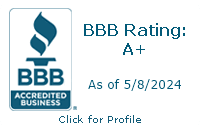Your company is undertaking a technological or structure change - what do you need to succeed in the changed workplace?
For the past 33 years, companies wanting to reduce cost, shorten cycle time, or improve quality have engaged Todd Herman Associates (THA) to make process and  technology changes.
technology changes.
Of course, the people working for these companies use what we implement and – people being people – embrace these changes with varying degrees of enthusiasm. Some people are fully on board from the start, while some are just “OK” with it, and a few fight change tooth and nail.
If you're faced with navigating change at work, how can you position yourself for success?
The Success Equation
Early in their excellent book, A Manager's Guide to Coaching: Simple and Effective Ways to Get the BEST Out of Your Employees, Brian Emerson and Anne Loehr present the following "Success Equation" (page 2):
Aptitude + Attitude + Available Resources = Level of Success Know-How Drive People High Skills Confidence Equipment Medium Ability Focus Time Low Enthusiasm
Based on my observations, these three areas – Aptitude, Attitude, and Available Resources – can be used to reliably assess how likely you are to successfully respond to workplace changes. To improve your chances of success, let me share a few tips you can use in each area, as selected and adapted from two very good blog posts, "How to Adapt to Change in Your Workplace (2023)" by Priyanka Malik, and "Your Playbook for Surviving Change at Work" by Shanna A. Hocking.
Aptitude
To your boss, it all boils down to whether or not you can do the new work, or have the ability to learn to do the new work.
A few items to consider:
- Determine What the New Work Will Require You to Do – How can you do this?
- Pay attention and ask questions during training sessions on the new process – better yet, volunteer to be on the team that helps define and test the new process.
- Pull out your most recent Performance Review and current Performance Plan, and compare your areas of strength and opportunities for growth against anticipated new responsibilities.
- If you're currently a supervisor, or if you will be a supervisor once the change is implemented, assess your ability to lead others and to hold others accountable for results.
- Compare Where You Are Versus Where You Need to Be – Our projects typically reduce the drudgery of work, freeing up people for more value-added activities. Let's assume your data entry workload is lessened dramatically, freeing you to focus on resolving issues. The question is – do you have the skills, knowledge, and ability to transition from keying to thinking? From being, say, an Accounts Payable (AP) Clerk to an AP Analyst?
- If you do, great!
- If not, list the areas where you need to improve to ensure future success – this is your Gap Analysis.
- Set New Goals – If your Gap Analysis shows you lack skills, knowledge, or ability to do some portion of the new work, take the initiative to develop and carry out a plan to learn new skills and hone existing ones so you can succeed when things change.
If you follow these suggestions, you’ll be well on your way to continued success.
Attitude
Let’s assume your boss knows you have the aptitude for the new work, meaning you CAN do the work, yet is concerned about your attitude and whether you actually WILL do the work. These intangibles are just as important, if not more important, than your knowledge, skills, and ability.
Some tips for success:
- Look for the Positives in Change – For example, less grunt work allows more time for value-added work, which is a positive for you and your employer.
- Embrace Change – Change happens in your personal life and you have to deal with it, so there's no reason to think your work life is any different. Accept that change is inevitable.
- Adopt a Growth Mindset – Even though change is inevitable, growth is not guaranteed. If you believe you cannot change, you're wrong – you can change, as long as you are capable of accepting the challenge of learning new things, and of being uncomfortable while doing so.
- Communicate Your Fears and Concerns – Change involves an unknown future, so that can be unnerving. Share your questions and feelings with a trusted colleague or your boss. Be sure to use "I language" when doing so – for example, "I'm concerned about not receiving adequate training on the new system – what's the training plan for this?"
- Write Down the Worst Case Scenario – Perhaps your worst fear is to not catch on to new things as quickly as your colleagues – if so, remind yourself you've always learned things a bit more slowly, yet you understand things more deeply.
- Use Better Language – I can't say this any better than the blog author, where the question at the end perfectly illustrates the QBQ: The Question Behind the Question concept:
Saying “change is hard” makes change hard. The messages you send yourself affect how you think and feel. Instead, try: “How can I best approach this now?”
- Choose To Be There – Ultimately, you get to decide whether or not you want to stay in your current position and deal with change. When things get tough, perhaps you say, "I have to work at this job." Consider reframing this as "I choose to continue in this job – even though things are currently tough, I see why this change will make things better for me, my colleagues, and my employer."
- Focus On What You CAN Control – As I've learned the hard way, the only thing I can control is ... ME! You can choose your mindset, how you view things, how you communicate, and whether you can live with the worst case scenario – and that's actually a LOT of control!
- Assess Your Attitude – Do your best to see yourself as your boss sees you. Does she see a good attitude or a bad attitude? If it's the latter, review the preceding tips and determine how you can change your words and behaviors to change her perception. Better yet, apologize to her for disappointing her, let her know you're working to improve your attitude, and ask her for weekly feedback on your progress.
Just because you're ABLE to do the new work is not sufficient – you need to be WILLING to do it, and your attitude determines this.
Available Resources
Being willing and able to do the new work is important, yet you still need resources to succeed.
- Take Stock of What You Have Versus What You Need – Let's say you're a department manager, who currently has 8 staff members, yet will only have 6 staff once the change is completed. That's a large reduction, so the question becomes, "What will it take for my 6 remaining people to be 33% more productive, to make up for the 2 staff I'm losing?" New technology may enable this, provided your people learn how to use it effectively.
- Advocate For What You Need – Quantify what you realistically need for your department to succeed, and then do your best to obtain the needed resources.
In an ideal world, you'll have the aptitude, attitude, and available resources needed for success.
Assessing Needs and Understanding Limits
After determining what's needed to succeed in the new normal, you still need to do a couple other things:
- Assess What Your Company or Boss Needs – If you have what's needed to succeed, staying where you are makes sense – otherwise, you might benefit from updating your resume and begin looking for your next opportunity.
- Understand Your Company or Boss Has Limits – If your aptitude might not allow you to succeed, your boss may nonetheless choose to invest extra resources to help you. If your attitude during the project has been negative, your boss may be willing to explicitly let you have another chance to improve. Even so, it’s best not to test these limits.
In my experience, most managers are willing to give you an opportunity to turn things around. Hopefully, you appreciate this, because it is in your best interest to take full advantage of these opportunities.
Change-Proof Your Career
The Success Equation of Aptitude, Attitude, and Available Resources provides a convenient framework for navigating your way through change. And no matter where you are in your career, it can help you be better prepared for growth by always learning and challenging yourself, and by doing your best to maintain the drive, confidence, focus, and enthusiasm you had when you first entered the workforce.
Sincerely yours,
![]()
Todd L. Herman






